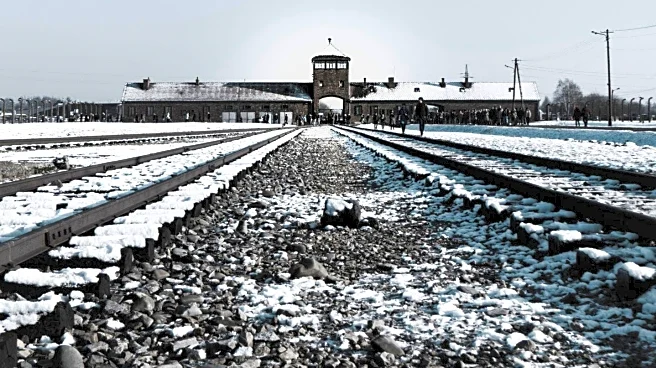What's Happening?
Following the release of Israeli hostages, there is a focus on the long-term recovery and rehabilitation process, drawing parallels with the experiences of Holocaust survivors. The return of the hostages was marked by emotional reunions, but experts emphasize
that the journey to healing is just beginning. The importance of listening, community support, and trauma-informed care are highlighted as essential components for helping former hostages rebuild their lives.
Why It's Important?
The recovery of former hostages is a complex process that requires comprehensive support systems. Drawing on the experiences of Holocaust survivors, the emphasis is on providing emotional and therapeutic support to address trauma. This approach not only aids individual recovery but also strengthens community resilience. The broader Jewish community's involvement in supporting hostages reflects a commitment to collective healing and underscores the importance of addressing trauma with empathy and understanding.
Beyond the Headlines
The focus on trauma-informed care highlights the need for long-term support and the role of community in healing. The experiences of Holocaust survivors offer valuable insights into the challenges of overcoming trauma and the importance of purpose and connection in recovery. This perspective can inform broader approaches to supporting individuals affected by conflict and violence, emphasizing the need for sustained and compassionate care.
















